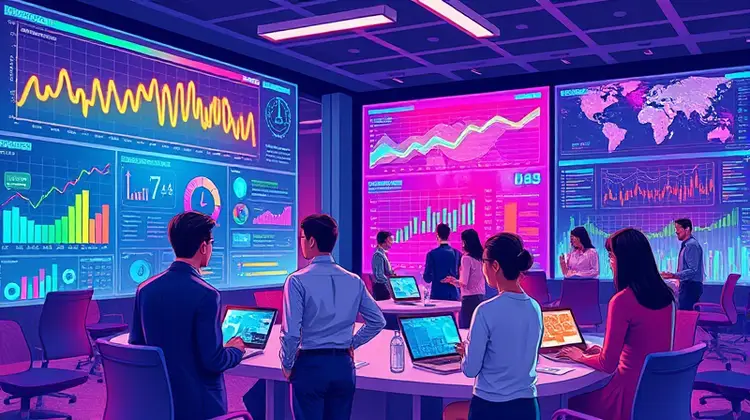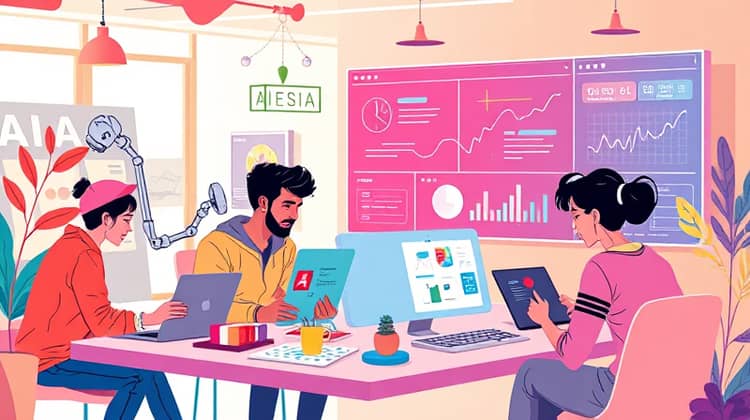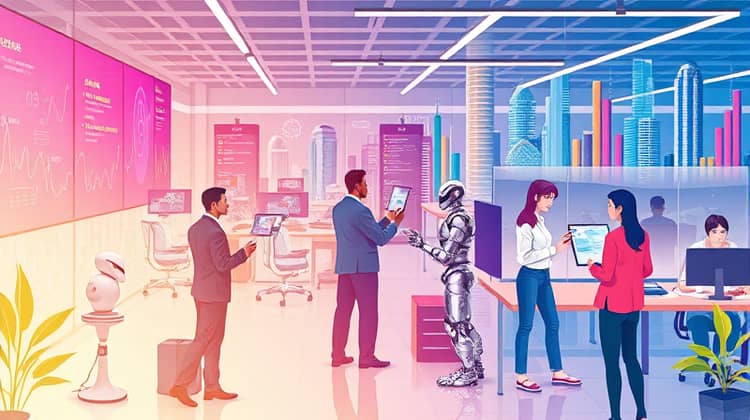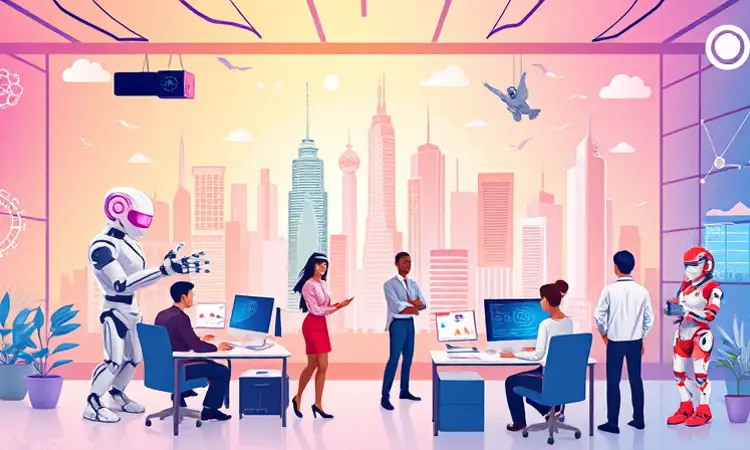As we move further into the 21st century, technological advancements continue to redefine numerous aspects of our daily lives, particularly within the job market. Artificial Intelligence (AI) stands at the forefront of this transformation, ushering in innovative changes that are shaping how work is performed, the types of jobs available, and the overall nature of work itself.
This article explores six significant ways in which AI is altering the job market, highlighting both the challenges and opportunities presented by these advancements.
1. Automation of Repetitive Tasks

AI has significantly impacted the way organizations manage their repetitive tasks. Automation solutions have allowed companies to improve productivity and efficiency by taking over mundane activities that were once performed by human workers.
From data entry to factory assembly lines, AI systems are capable of completing tasks much faster and with fewer errors than their human counterparts. This capability not only streamlines processes but also allows employees to focus on more strategic aspects of their jobs.
- Data entry and processing
- Routine customer service inquiries
- Inventory management
- Basic data analysis
As a result, employees can devote their time to higher-value tasks that require critical thinking and creativity, paving the way for a more innovative work environment.
2. Creation of New AI-Driven Jobs

While AI automates many job tasks, it also creates a plethora of new opportunities in fields such as machine learning, data science, and AI ethics. These roles require specialized skills in technology, programming, and analytics which are becoming increasingly crucial for modern businesses.
As companies develop AI-based solutions, the demand for professionals who can design, implement, and manage these technologies grows, thus giving rise to entirely new job categories that never existed before.
- AI trainers who develop learning algorithms
- Data analysts to interpret AI-generated insights
- Ethical consultants to navigate the challenges of AI
- AI system maintenance engineers
This evolution of job roles not only highlights the adaptability of the workforce but also emphasizes the exciting possibilities available in the era of AI-driven business operations.
3. Enhanced Decision-Making

AI technologies are now equipping managers and employees with tools that enable data-driven decision-making. The use of AI algorithms allows organizations to analyze vast amounts of data quickly, identifying trends and patterns that human analysts might miss.
These insights aid in making informed choices, whether related to marketing strategies, resource allocation, or product development, ultimately leading to a more strategic approach in business operations.
- Predictive analytics for sales forecasting
- Consumer behavior insights through data mining
- Operational efficiencies through real-time monitoring
- Risk assessment using historical data
By integrating AI into the decision-making process, businesses can operate more effectively, reducing uncertainties and steering towards better outcomes.
4. Shift in Skills Demand

As the landscape of job requirements evolves, the skills needed to thrive in today's job market are also changing drastically. A growing emphasis on technological proficiency means that employees must adapt by cultivating new skills relevant to AI and digital tools.
Moreover, the traditional roles that once required manual labor are increasingly being replaced by positions emphasizing analytical thinking, creativity, and emotional intelligence—all attributes that cannot be easily replicated by machines.
- Technical skills in AI and machine learning
- Strong analytical and data interpretation skills
- Creativity and innovation in problem-solving
- Emotional intelligence and interpersonal skills
This shift not only necessitates reskilling and upskilling initiatives but also paves the way for educational institutions to rethink their curricula and better prepare future generations for the evolving job market.
5. Improved Work-Life Balance

With AI taking over repetitive tasks, employees often find they have more time to focus on their core responsibilities, leading to an enhanced work-life balance. Companies are leveraging AI to facilitate remote work and flexible schedules, allowing employees to work when they are most productive.
Additionally, AI-driven tools can assist individuals in managing their time more effectively, automatically allocating tasks that enhance personal productivity and well-being.
- Remote working possibilities
- Flexible scheduling options
- Automated task management
- Real-time collaboration tools
These changes contribute to a healthier work environment, where employees can achieve better satisfaction in both their professional and personal lives.
6. Increased Freelance and Gig Opportunities

The rise of the gig economy aligns closely with advancements in AI, which facilitate platforms that connect freelancers with businesses seeking specialized skills. Individuals can leverage AI-powered tools to enhance their offerings and manage their work more efficiently.
As organizations look to minimize costs and maximize flexibility, the demand for freelance and contract workers has grown, fostering a significant shift from traditional employment models to more diverse work arrangements.
- Platforms like Upwork and Fiverr for freelancers
- AI-driven project management tools
- Remote collaborations on global projects
- Flexibility in choosing projects and hours
Ultimately, this landscape creates an environment where individuals can pursue freelance opportunities that align with their personal goals and lifestyles, resulting in a dynamic and ever-evolving job market.
Conclusion

As we continue to explore the integration of AI into workflows, it becomes evident that the job market will not only undergo transformations but will also present countless possibilities for adaptation and innovation.
By embracing the changes brought about by AI, both individuals and organizations can unlock new avenues for growth, ensuring that we remain competitive in a rapidly evolving economic landscape.














